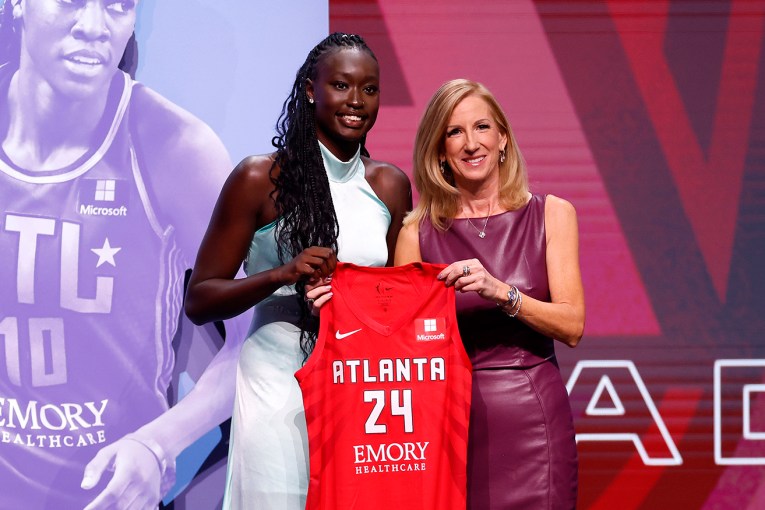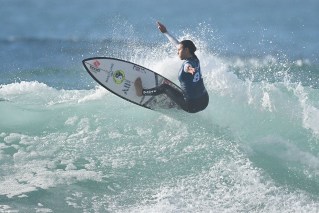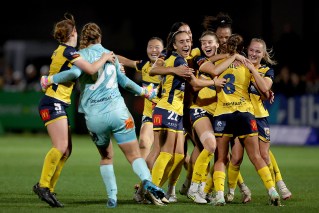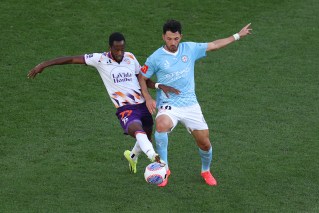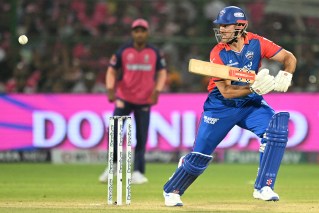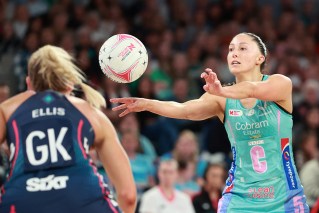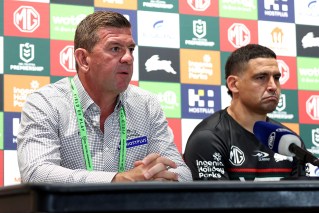Meet Bec Rawlings, Australia’s ‘Bare-Knuckle Boxing Queen’
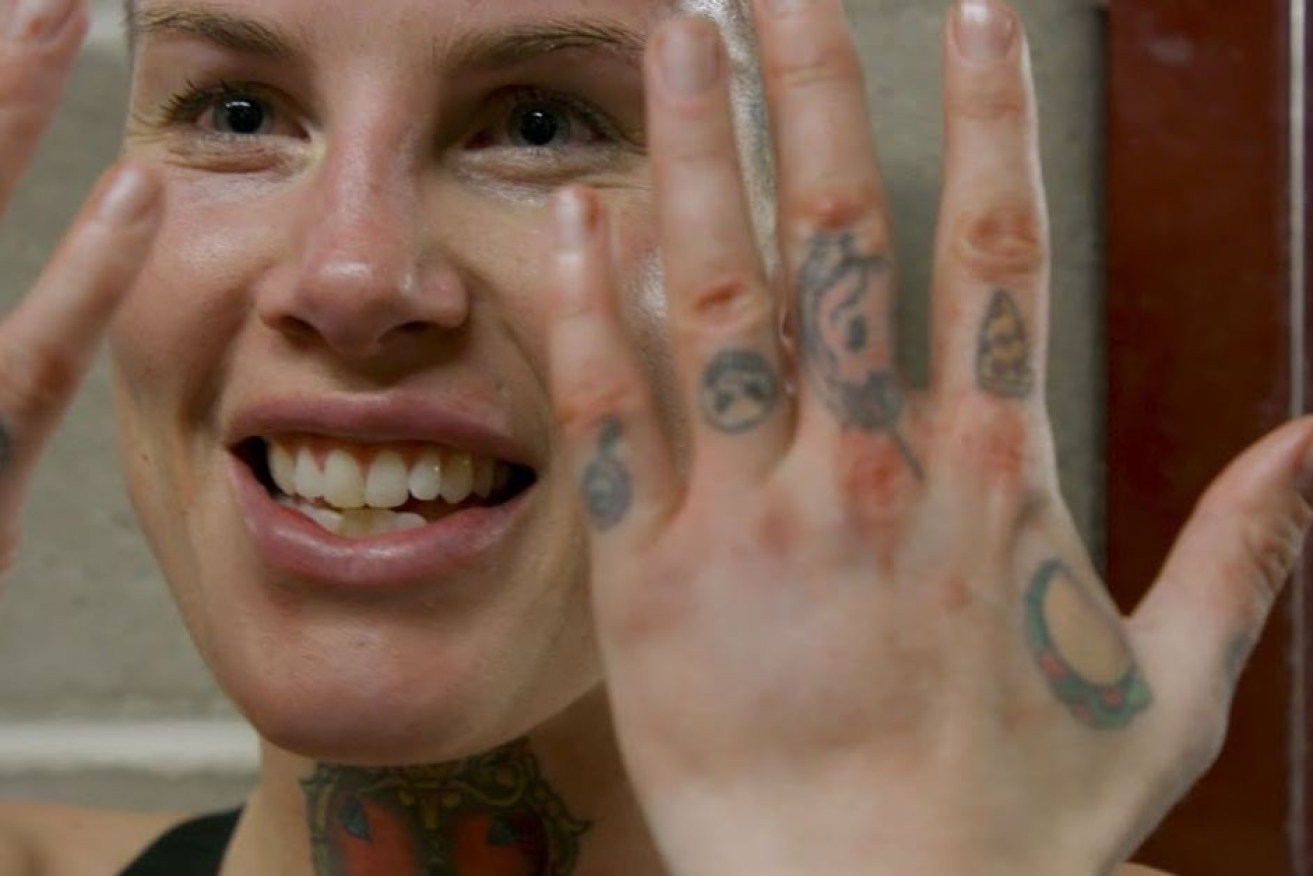
Bec Rawlings and her fight-ravaged hands. Photo: ABC
After two rounds of brutal punishment, Bec Rawlings’ opponent stayed rooted to her chair. Blood had been spilt by both women. Though the fight had been clean. Just a boxing match like countless others.
Except for one important detail.
When Rawlings’ hand was raised by the referee, her swollen knuckles were exposed. Neither woman had been wearing gloves.
Australia’s Bec Rawlings was crowned the ‘Queen of Bare Knuckle’ after her win in two rounds over Alma Garcia.
In June this year Brisbane-based Rawlings featured in the first fully legal bare-knuckle boxing event staged in the US for over a century, in Wyoming.

Bare-knuckle boxer Bec Rawlings training in Brisbane. Photo: ABC
Some 2000 fans turned up to watch. Thousands more bought pay-TV subscriptions. This weekend she will defend her unofficial title of ‘Queen of Bare-Knuckle’, this time in Mississippi.
Her debut victory, and the manner in which she fought, has given her a share of top billing. It is not hard to see why. She wears a kaleidoscope of tattoos across her ripped body. A half-shaved head and piercings give her the look of an outlaw.
Fighting is what defines her. It is how she provides, as a caring single mother, for her two young boys. It is where she finds her release. And she’s good at it.
“Whether it’s bare-knuckle, gloved boxing or MMA, my passion and life is fighting,” she says.
I look at people who do crossfit and think why on earth would you want to do that?
“I do parts of that … so I am better at punching people in the face.”
In truth Rawlings has been fighting all her life.
“On the wrong path” as a teenager, the organised sport of mixed martial arts, and motherhood at a young age, gave her a purpose when she needed one.
Following the birth of her oldest son Zake in 2008, the then 19-year-old Rawlings found herself unfit and overweight. She joined a gym, kickboxing to get in shape.
“I just loved it straight away,” she says. “[And] when I found out you could fight and get paid for it, I was like, ‘Sign me up’.
“Back then there was [only] two other girls in the country who were fighting professionally. One of them agreed to fight me. But [before it could take place] I fell pregnant with my second son, Enson.”
Rawlings had met Enson’s father through the sport. A professional MMA fighter himself, the pair trained together and were married.
On the face of it they appeared the perfect couple, a happy family.
It was a false impression.
She says behind closed doors she was being mentally and physically abused on a daily basis.
“I fought back as much as I could at home. I was always strong-minded and strong-willed but there’s only so much fighting you can do,” she says.
“It was more the emotional abuse that makes you stop physically fighting back.”

Australia’s Bec Rawlings was crowned the ‘Queen of Bare-Knuckle’ after her win in two rounds over Alma Garcia. Photo: Twitter/@RowdyBec
She started each day by asking herself: “What can I do today to not get bashed?”
“When you’re in that situation the victim often protects the abuser,” she says. “So I would make up stories about why I had a black eye … which was easy to do when you’re a professional fighter.”
Rawlings’ debut professional fight took place less than 10 months after she gave birth.
“That fight camp was the hardest I’ve ever gotten ready for,” she recalls, “because I was breast feeding and raising kids and surviving horrible circumstances at home, and training twice a day. All while being told I would never do it, that he had more talent in his pinkie finger than I ever will.
“Training for that fight was my out, that was my thing, that was my double fingers up to him, to everyone.”
Eventually she made a decision to leave.
“If I didn’t have my kids I probably wouldn’t have made it out,” she says. “I left for them.”
No charges were laid against Rawlings’ husband for the pain she says he inflicted on her.
Earlier this year he was found guilty of assaulting one woman and pleaded guilty to assaulting a second.
Fighting a new fight
Rawlings’ fight career has been successful, but not straightforward.
Victories with the all-female promotion Invicta FC took her next to the UFC and the increased exposure there.
However, in April this year, having lost four UFC fights in a row, Rawlings was released from her contract. Around the same time Bare Knuckle FC, a new promotion headed by David Feldman, reached out to her.
Feldman had previously staged a 2011 bout, featuring the bare-knuckle fighter Bobby Gunn, on a Yavapai Nation reserve in Arizona.
Encouraged that there was enough interest to find an extended audience, the concept of a first regulated, sanctioned event was offered to some 28 states. Two refused it outright. The rest were cautious about being the first.
👑🤜🏻💥 Watch me retain my crown on @bareknucklefc LIVE on PPV August 25th 🎥 #bareknuckle #bareknuckleboxing #boxing #boxeo pic.twitter.com/TShPPlnAEC
— Bec Rodriguez (@RowdyBec) August 23, 2018
In Wyoming there were no such misgivings. State legislator and UFC fighter Bryan Pedersen, now chairman of the Wyoming Sport Combat Commission, had already successfully sponsored a bill to create a state board of MMA there, the first of its kind, in 2012.
He was instrumental in drawing up rules for the new version of the age-old sport.
Pedersen admits there was a challenge to overcoming some people’s perceptions. Specifically around the emotive words ‘bare knuckle’.
“It means something very raw and very graphic to people that in fact are not the same as the [reality of the] sport,” he says.
The gloves come off
Fights last between five and nine rounds of two minutes each. Only punching is allowed, unlike in MMA where knees and elbows can be used as weapons.
Two physicians are on hand to take care of fighters’ welfare.
For the uninitiated the fights can make for uncomfortable viewing. Broken noses are common. Blood is regularly spilled because of the sharp contact of bone on bone.
In that it shares an aesthetic with MMA and UFC fights, in which smaller mittens are worn rather than heavy gloves.
As conversation around concussion in all sports has intensified, the issue of chronic traumatic encephalopathy (CTE) is leading sports authorities worldwide to examine the impact of blows to the head on the long-term health of athletes.
In boxing and other combat sports, such impacts are essential rather than incidental. Proponents of bare-knuckle fighting suggest, counter-intuitively, that removing gloves actually helps keep athletes safer in this regard.
“Think about the difference between a gloved and ungloved hand,” says Pedersen. “You’re not going to throw junk punches against somebody’s skull cause you’re going to bust your hand.
“And if you’ve broken your hand you’re not going to be able to continue the fight.
“So you find there are less blows of that deep concussive nature, you get more accurate shots.”
Serious, long-term, independent research would need to be undertaken to back up such a belief.
Some medical bodies, like the Australian Medical Association, believe that irreparable damage is being done to fighters in the meantime and have called for MMA fights – and by extension bare-knuckle boxing contests – to be not just regulated, but outlawed altogether.
The opponents of MMA and bare-knuckle boxing view them as human ‘blood sports’.
UFC only made its debut in Western Australia last year after the state government lifted a ban on cage fighting.
The Australian Medical Association reacted strongly, condemning government sanctioning of “a spectacle that celebrates the brain damage of its participants”.
“The sport should be banned, it’s as simple as that,” said AMA (WA) president Omar Khorshid.
“We’re open to a free-market system. If people want to see this, and there’s fighters who want to participate, why not?” says Pedersen, who insists a controlled environment is the optimal way of managing a sport that would otherwise exist in the dangerous margins, where bouts were already taking place, unregulated.
“Wouldn’t you want to have something that’s already happening be made as safe as possible?”
A star in the making
Rawlings’ fights didn’t pay off for her at first, but she does earn a wage from her fighting now. Not at superstar level, but a living wage.
“My older brother, when he was bored when we were kids, would pay me money to fight with my younger sister. His own personal little fight club. My sister was a lover not a fighter and I would win every time. The prize was a dollar coin and a 50-cent coin. And I would take the 50-cent coin every time because it was bigger. He never told me.”
“Now I am on the world stage – earning way more than 50 cents: although a few of my early fights I was in the red so it hasn’t been an easy road.”
In Wyoming in June, Rawlings won the only bout of the night featuring women, stopping Alma Garcia with a TKO in the second round.
“It felt like the rawest form of combat sports to just go out there and throw your hands and let loose,” she says.
“You know which shots have hurt them in bare knuckle; sometimes you don’t with MMA or boxing gloves.”
Feldman was among those impressed by Rawlings’ performance.
“She showed incredible technical skill that night and overpowered a professional boxer. I think she showed all the fans this can be a mainstream sport for everybody,” he said.
I think it is a no brainer that she is going to be a great star in this.”
Whether you view bare-knuckle boxing as the future of combat sport or a barbaric relic of another age that should remain only in history books, the reality is that, in the US at least, it is happening.
Rawlings views the challenges the sport is facing in a fight for broad credibility as similar to those that UFC has in large part overcome in its move to a multi-million-dollar mainstream promotion.
And she is excited to be part of its inception.
“Nothing worth it has ever been easy,” she says.
“If you love it and it makes you happy, chase it no matter what anyone says or how hard the road is.”
It is difficult to imagine a harder road to choose. Blood, sweat and tears are not a cliche, but a simple reality of the job. It is a challenge she accepts. Relishes, even.
“I suppose things that hurt normal people don’t hurt me that much,” she says.
